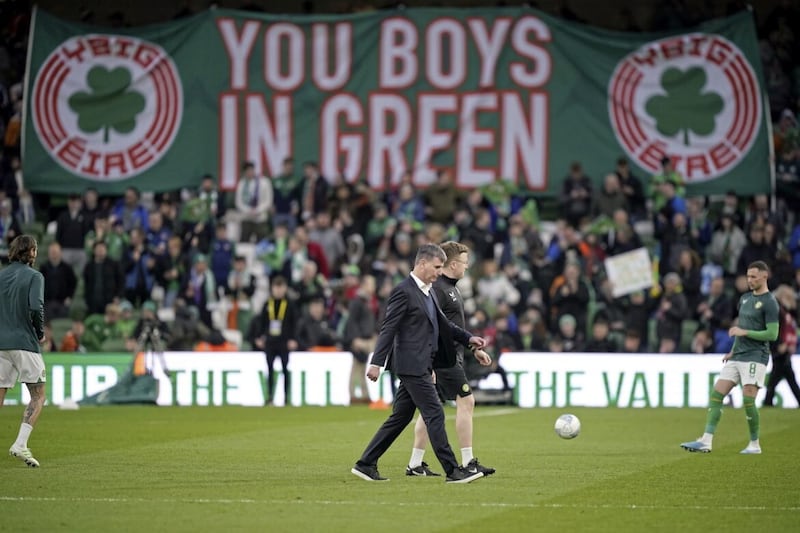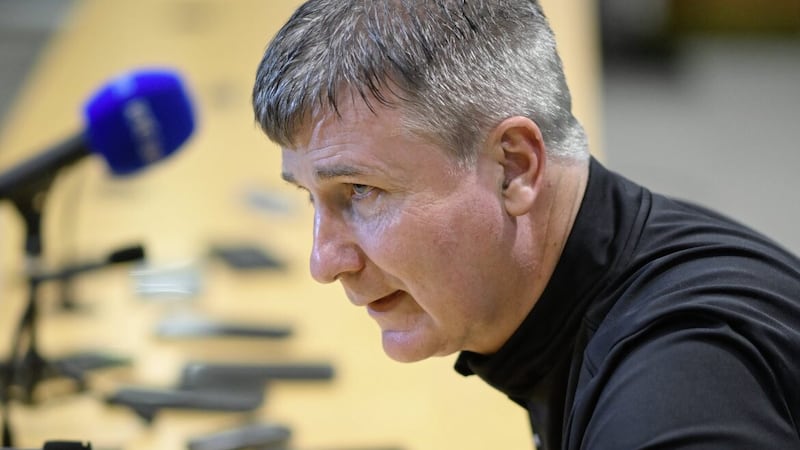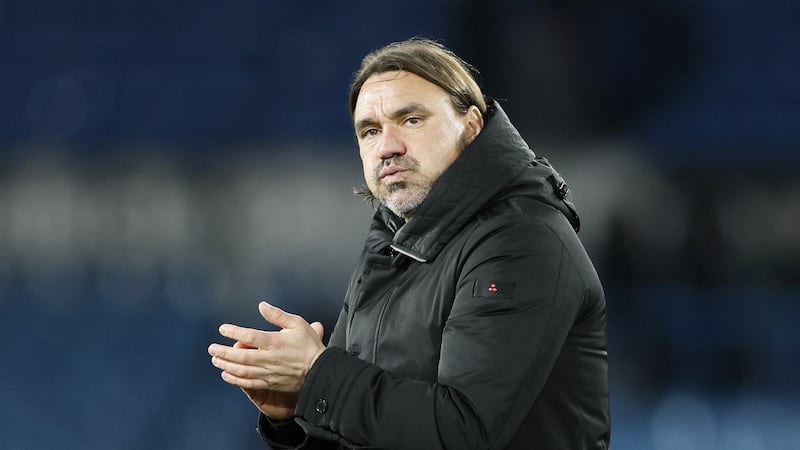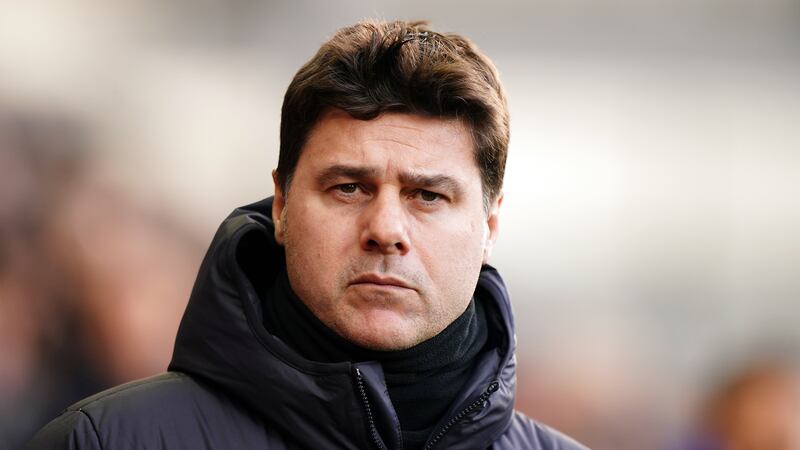FIRSTLY, let’s state the obvious. Stephen Kenny’s time in charge of the Irish national team had expired long before the FAI released their statement on Wednesday night.
The Dubliner’s time was probably up after the demoralising defeat to Greece in Athens in June and if there were any hopes of him remaining in the post for another campaign, they were extinguished when the same team arrived in Dublin last month and banked the points with the minimum of fuss.
Results simply weren’t good enough to justify retaining Kenny’s services. You just reach a point where it’s time for a managerial change, if only to freshen things up and try something new.
The hope is that the next manager can get a tune out of the current group of players and, in fairness, the chances are slightly better given that Kenny dug new and much-needed foundations and suffered the pain that came with that process.
We’ve heard it said that Kenny was lucky to last as long as he did because of his friends in the Irish media. These are broad brushstroke comments because there were a significant number of journalists throughout who were critics of the manager too.
Read more:
- Who are the contenders to replace Stephen Kenny as Republic of Ireland boss?
- I have grown as a manager and leave behind a better Irish squad: Stephen Kenny
- A lack of cutting edge cost Stephen Kenny's Ireland teams dearly: Ray Houghton
I liked Stephen Kenny and wanted him to be a success in the job – but international management can never be reduced to a popularity contest.
What requires critical assessment is the manager’s vision and the starting point they find themselves in.
You need to block out the rowdiness and bombast on social media. You’ll rarely find balance and patience on these platforms, largely because balance and patience don’t make enough noise.
You also won't get noticed or get the ‘favourites’ or retweets people covet. And not forgetting the dime-a-dozen podcasts need numbers too.
Sadly, so much of the sporting discourse of the day amounts to truncated debate and emotive soundbites.
Weaned on a reasonably generous diet of appearances at major tournaments over the years (Euro ’88, Italia ’90, USA ’94, Japan and South Korea in ’02, Euro 2012 and Euro 2016), there is an inarticulate belief among many supporters is that their team must be due another appearance soon.

Based on what? A time lapse from the last appearance at a major finals?
When you don’t look after or nurture the game’s underbelly you stop qualifying for major tournaments.
Kenny initiated a process - not without pain - of bringing younger players through the system, while his predecessor Mick McCarthy was bringing 35-year-old Glenn Whelan out of retirement to man central midfield.
“We’ve given 18 players their debut,” Kenny said in June (that number has risen to 21). “We’d nine years with nothing through – nothing. We brought 18 players through from the system. We finished third in the group [2022 World Cup qualification behind Serbia and Portugal] which was probably parity.”
There has been a lack of context in the criticisms coming from TV pundits Brian Kerr, Richard Dunne, Damien Delaney and Didi Hamann among them.
They’ve constantly told the public that the Republic of Ireland’s ranking has tumbled, and the team is getting further and further away from qualifying for major tournaments. This is absolutely true.
They view everything through the prism of Stephen Kenny – where every pockmark on a performance was somehow the manager’s fault – and yet, there has never been enough discussion around the distinct lack of quality among the current squad.
Stephen Kenny made numerous errors in the role, but equally, it's not easy for a manager to produce a team that's greater than the sum of its parts when so many of the squad are not even playing regularly at club level.
Two-and-a-half days' training at Abbotstown won't transform that scenario.
When Mick McCarthy assumed the reins for a second time, he found the job had become a much bigger challenge than the first time, largely because of the scarcity of players at his disposal.
“I was looking at games [last weekend] to go to and the squad seems to be getting smaller and smaller,” he told reporters in January 2019. “There are quite a lot of them not playing through one thing or another.”
After leaving Georgia with a scoreless draw in a Euro 2020 qualifier, McCarthy’s words were also quite telling about Ireland’s waning status on the international stage.
“Georgia are a good team but I get the feeling, even from the Georgian journalists, that we should be much better and should go and win. That's a ridiculous notion,” McCarthy noted.
Despite what’s staring everybody in the face, Ireland continues to have designs on itself.
When you look down from Aviva press tribune in a competitive international match and you see Josh Cullen, Jason Knight and Will Smallbone in midfield, you don’t need to be a footballing Einstein to realise that maybe the team is just short in too many areas.
As all these players clock up more international appearances, they may be capable of causing the odd upset in the future and might make a better fist of qualification. They may also level out.
Giovanni Trapattoni, Martin O’Neill and Mick McCarthy often played down the quality of the Irish players they had, but lauded their fight and determination. When they spoke to the media, their primary audience was the public.
Kenny adapted a different approach. When he spoke to the media, his primary audience was always his players. At every given opportunity, he would laud their quality.
It was a courageous strategy but one that ultimately formed part of his downfall. He’d raised expectations to such an exaggerated level that when the team didn’t produce the goods on the field, his lofty words were regularly used against them.
“When you set the bar high, your fall can be acute,” Kenny acknowledged in his last press conference as manager on Tuesday night. “That’s the nature of how I’ve always managed.”
The bleak truth of the matter is that Ireland finished fourth in Euro 2024 Group B behind three teams that are better than them: France, Holland and Greece.
As 2023 draws to a close, the Republic of Ireland find themselves hovering just above minnow status. You can tear strips off the manager for that decline and it will certainly make some fans feel better - or they might venture to dig a little deeper into how the senior international team reached this point.









